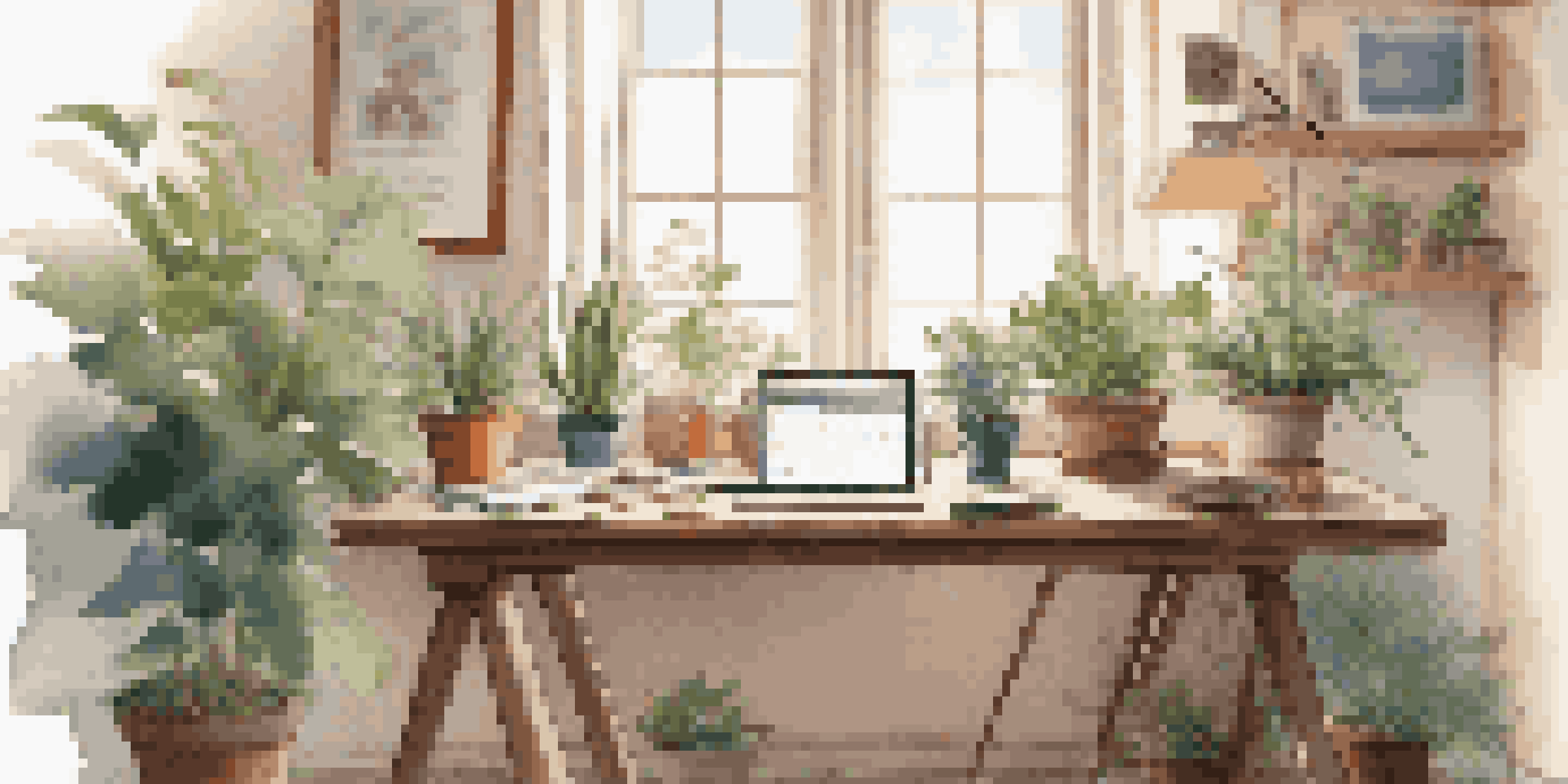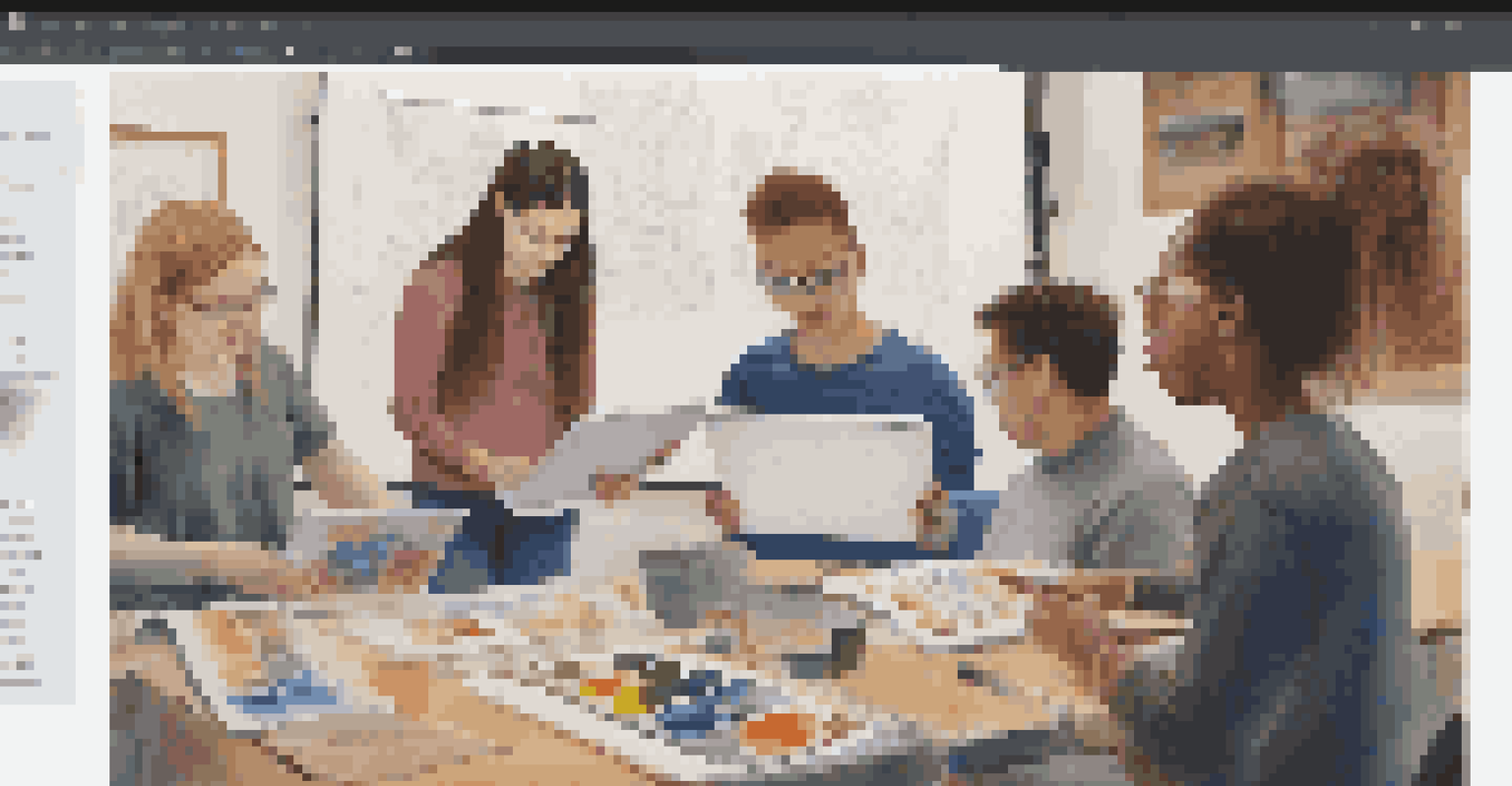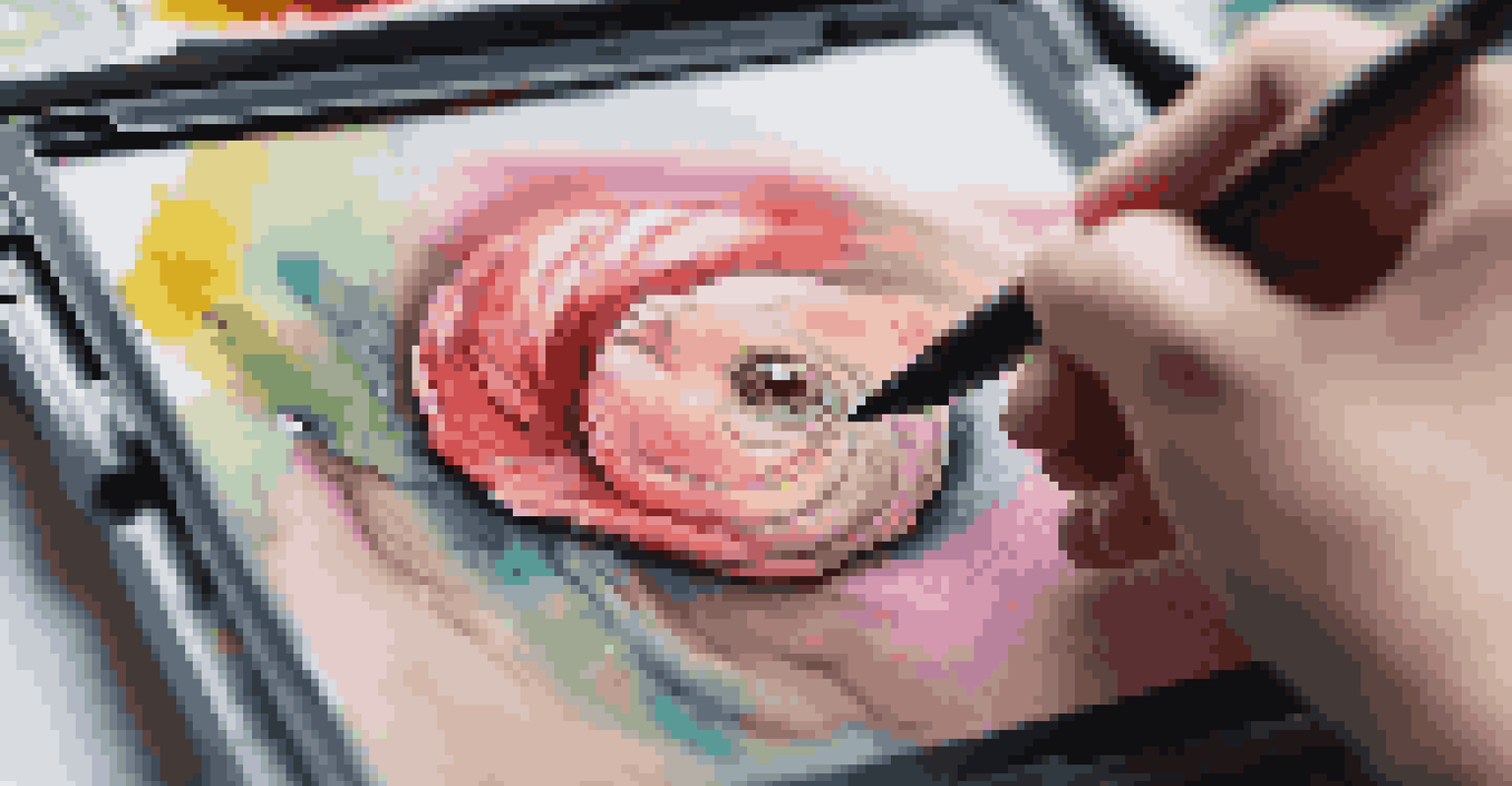The Best Online Courses for Learning Digital Art Skills

Why Online Courses Are Ideal for Learning Digital Art
In today's fast-paced world, online courses offer flexibility for aspiring digital artists. You can learn at your own pace, fitting lessons into your busy schedule without the constraints of traditional classrooms.
The beautiful thing about learning is that no one can take it away from you.
Additionally, online platforms often provide a wide variety of resources, from video tutorials to downloadable assets, making it easier to grasp concepts. This immersive experience can enhance your learning and keep you engaged.
Finally, online courses often connect you with a global community of fellow artists. This networking can lead to valuable feedback, collaboration opportunities, and inspiration from diverse perspectives.
Top Platforms Offering Digital Art Courses
Popular platforms like Skillshare, Udemy, and Coursera are treasure troves for digital art enthusiasts. They host a vast range of courses catering to all skill levels, from beginners to advanced artists.

Each platform has its unique strengths; for instance, Skillshare focuses heavily on creative fields, while Coursera partners with universities to provide more structured courses. This variety allows you to choose the format that suits your learning style best.
Flexibility of Online Learning
Online courses allow aspiring digital artists to learn at their own pace, fitting lessons into busy schedules without the constraints of traditional classrooms.
Moreover, many of these platforms frequently offer discounts or free trials. This means you can explore different courses without a significant financial commitment, making it easier to find the right fit for your needs.
Must-Try Courses for Beginners in Digital Art
If you're just starting out, courses like 'Digital Painting in Photoshop' on Udemy are perfect. They guide you through the basics of digital painting, ensuring you build a strong foundation.
Art is not what you see, but what you make others see.
Another great option is 'Introduction to Digital Art' on Skillshare, which covers various tools and techniques. It's designed to help you feel comfortable using digital software while unleashing your creativity.
These beginner courses often include practical assignments, allowing you to apply what you've learned. This hands-on approach not only reinforces your skills but also builds your confidence as an artist.
Intermediate Courses to Enhance Your Skills
Once you have the basics down, consider diving into intermediate courses like 'Character Design for Games' on Skillshare. This course helps you refine your character design skills while introducing you to industry-specific techniques.
Also, 'Procreate for Beginners: Learn the Basics of Procreate' is a fantastic option for those looking to master this popular app. It covers everything from brushes to advanced layering techniques.
Community and Feedback Benefits
Engaging with a community of fellow artists enhances the learning experience by providing valuable feedback, inspiration, and collaboration opportunities.
These intermediate courses not only challenge you but also encourage you to develop your unique style. They often focus on real-world applications, preparing you for potential freelance opportunities or personal projects.
Advanced Digital Art Courses for Professionals
For seasoned artists, courses like 'Art Fundamentals: Color Theory' on Udemy can be transformative. It delves deep into color theory, helping you understand how to use color effectively in your artwork.
Another great option is 'Concept Art for Beginners' which teaches advanced techniques used in the gaming and film industries. This course aims to elevate your skills and broaden your artistic horizons.
These advanced courses often include critiques from instructors or industry professionals, providing invaluable feedback. This is essential for those looking to push their work to a professional level.
The Importance of Community and Feedback
One of the biggest advantages of online courses is the community aspect. Platforms often have forums or groups where you can connect with fellow students, share your work, and receive constructive feedback.
Engaging with a community of artists can significantly enhance your learning experience. You can find inspiration, collaborate on projects, and support each other's artistic journeys.
Personalized Learning Paths
Creating a personalized learning path tailored to your goals helps you develop specific skills and stay focused on your artistic aspirations.
Additionally, many courses encourage peer reviews, which can help you develop a critical eye for your own work. This feedback loop is invaluable in your growth as an artist.
Creating a Personalized Learning Path
As you explore online courses, it's essential to create a personalized learning path tailored to your goals. Consider what skills you want to develop and choose courses that align with those objectives.
Don't hesitate to mix and match courses from different platforms. This allows you to benefit from various teaching styles and content, enhancing your overall learning experience.

Lastly, keep your long-term aspirations in mind. Whether you want to pursue a career in digital art or simply create for pleasure, curating your education can help you stay focused and motivated.
Tips for Maximizing Your Online Learning Experience
To get the most out of your online courses, set aside dedicated time for learning. Treat it like a scheduled class, free from distractions, to ensure you absorb the material effectively.
Engage actively with course content by taking notes, practicing techniques, and participating in community discussions. This active involvement fosters deeper understanding and retention of information.
Lastly, don’t forget to apply what you learn in your own projects. Creating art outside of coursework helps solidify your skills and motivates you to explore your unique style further.